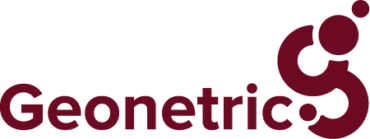It was Wednesday morning, the last day of SHSMD 2015. It may have been the timing, but the 8:30 a.m. session summed up the entire conference for me: ROI should not be an afterthought or a proof check at the end of the campaign, quarter, or year. It should be the way your team, and even your organization, operates.
“People in the industry operate with beliefs and biases. To the extent you can eliminate both and replace them with data, you gain a clear advantage.” – Michael Lewis, Moneyball
In the session, John Marazone and Simon Yohe, both of Orlando Health’s marketing team, talked through their journey of moving from a cost center to revenue generator. And although they admit they’re not done, they are in their second year of a well-planned execution with interesting insights to report.
Marazone began the story when an interim CEO took over Orlando Health two years ago and promised the marketing department no increase in budget, but the trust and leeway to do what they do well. As fans of the ‘moneyball’ philosophy in baseball, John’s team believed the only way they could improve was to implement accountability. Their guiding principles are as follows:
- Healthcare marketing has to be accountable
- Shift to a more integrated digital, social, mobile multi-channel marketing strategy
- Align physician outreach with consumer marketing
- Precision marketing – using data to engage both current and future patients
The Importance of CRM & Finance
An important part of making this transformation included limiting untraceable spending. Advertising spending is shifting from traditional to digital channels. The organization’s CRM has become the central point for the marketing team, and is admittedly the most valuable tool.
Another key part of success for Orlando Health was engaging other departments in the organization, most importantly finance. Bringing finance into the fold helped the marketing team create corporate-wide approved ROI formulas.
And since then, every campaign has had an understood need, baseline numbers (including revenue and cost), and an execution plan All campaigns include downstream revenue tracking. All campaigns have lead generation as part of the strategy. So far, all campaigns have met their goals.
Impressive Results
Although still early in the transformation, Marazone and his team are reporting impressive numbers. From FY ’14 to FY ’15, the team has recorded a 200% increase in landing page unique visitors, a 100% increase in web-based appointment requests, and a 317% increase in marketing campaign call center volume.
Overall, since making the move Orlando Health’s marketing team has tracked $17 million in gross charges and $4 million in net revenue.
Talk about impressive. And those numbers are even more amazing if you stop and recall they successfully made this shift without a budget increase.
The Takeaway
A lot of Orlando Health’s success hinged on the fact they realized driving traffic to digital spaces was critical, and that they agreed on the outset that the only real way to say with certainty that a campaign succeeded or failed was with data.
These are conversations we have every day with our clients, and it’s refreshing to see so many healthcare marketers embrace digital and the improved tracking capabilities it offers. If you’d like to talk to a partner that isn’t scared of ROI, contact us. We love to help our clients prove the value of marketing campaigns and digital efforts.
